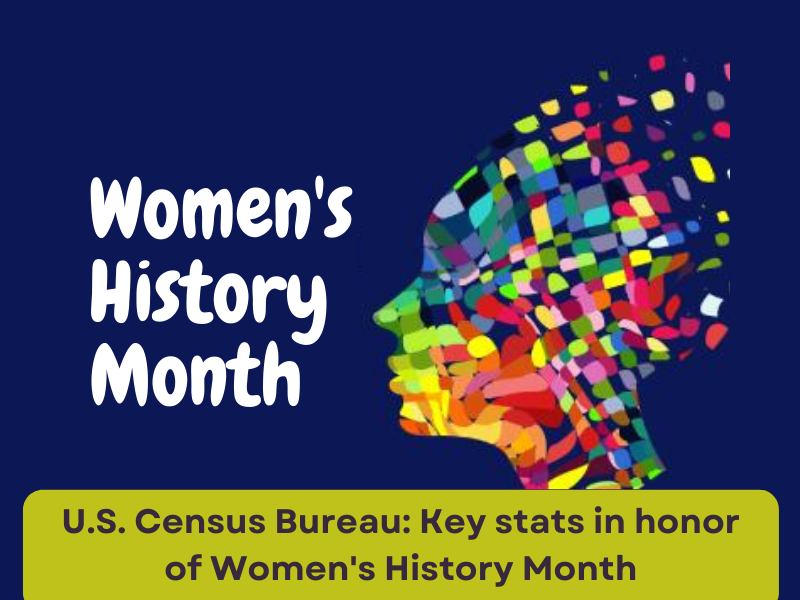When women from various New York City factories staged a protest over poor working conditions. The first Women's Day celebration in the United States was in 1909, also in New York City. More than seven decades later, Congress in 1981 established National Women's History Week to be commemorated annually the second week of March. In 1987, Congress expanded the week to a month and every year since has passed a resolution (and the president has issued a proclamation) designating March Women’s History Month.
As we celebrate Women’s History Month 2022, we reflect upon advances women have made over the last decade. Women have increased their earnings, education and fields of occupation, and continue to have longer average life spans than men. Below are some Census Bureau stats highlighting these and other changes over the years. We appreciate the public’s cooperation in helping us measure America’s people, places and economy.
Did you know?
164.8 Million
The number of females of all ages in the United States. There were 159.9 million males of all ages.
2 to 1
The approximate ratio of women to men ages 85 and older (is 4.1 million to 2.2 million) in the United States.
20.7%
In 2019, the percentage of women 25 and older with a bachelor’s degree as their highest degree; 19.9% of men had a bachelor’s degree as their highest degree.
80.8%
Women's median earnings as a percentage of men's median earnings, for full full-time, year-round workers 16 years and older.
More Stats
- Percentage of Women in Select Occupations
- Percentage of Women in STEM Occupations
- Number of Women Veterans
Earning Stats
Education
Previous Facts and Figures
Stats for Stories
- Stats for Stories: Women’s Equality Day
- Stats for Stories: Equal Pay Day
- Stats for Stories: Mother’s Day
- Stats for Stories: International Women’s Day
America Counts
- What Is the Gender Wage Gap in Your State?
- Women Making Gains in STEM Occupations but Still Underrepresented
- Unequally Essential: Women and Gender Pay Gap During COVID-19
- Parents Juggle Work and Child Care During Pandemic
- Understanding Equity Through Census Bureau Data
- Cost of Motherhood on Women’s Employment and Earnings
- Women More Likely to Have Multiple Jobs
- College Degree Widens Gender Earnings Gap
Graphics
- Gender Pay Gap by State
- Historical Reported Voting Rates of Women
- Women’s Earnings by Selected Occupations: 2019
History





